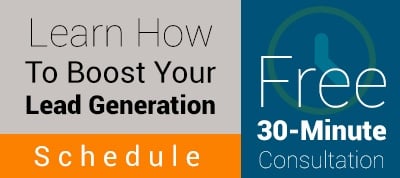Insurance agencies are facing tremendous challenges. On the employee benefits side of the house, Obamacare's minimum loss ratio requirements are spurring carriers to reduce the commissions they pay to agents and brokers. While commissions are being reduced, customers require more and more help complying with all of the new legislation that is coming on line. On the property and casualty side, competition is becoming increasingly fierce as agencies look to make up for revenue reductions on the benefits side by growing on the P&C side. These challenges are in addition to the challenges that all businesses face as they continue to deal with a weak economy with uncertain tax policy. Yet insurance agencies still need to grow. Savvy agencies are turning to their websites and social media networks to grow in uncertain economic times.
A business without a web presence is missing out on enormous growth potential. The long term success of your insurance agency may well depend on how well you use the power of the Internet to promote your business. There are two basics ways you can do this. Advertising efforts are designed to drum up new business to find people that had not previously considered working with you and convince them why they should do so. Inbound marketing, on the other hand, is designed to capture interest that already exists, rather than trying to generate new interest. Inbound marketing for insurance agencies works by creating useful content that prospects would want to find and using that content to draw attention to your website, blog or social media page.
Why Use Inbound Marketing?
So why should insurance agencies use inbound marketing efforts in their growth strategies? For one thing, insurance is a complex and continually changing industry; this means that people are constantly looking for details about it or at least details about how it affects their particular situation. Insurance buyers frequently use the Internet to research and purchase insurance, which means that you are faced with a tremendous amount of competition from other agencies on a daily basis. To stand out, you need to find ways to effectively communicate your products, services and expertise to your potential customers. Inbound marketing can help you do just that.
How Does Inbound Marketing Work?
Inbound marketing is designed to take advantage of people's preexisting online habits. Quality inbound marketing can turn the research people are doing online anyway into sales. If your inbound marketing content makes complicated insurance issues understandable, you can build trust with your visitors and potentially turn some of them into clients. Insurance is such a rich and varied industry that there will always be useful content to generate. Therefore, inbound marketing can be ideal for any type of insurance agency. Inbound marketing allows you to manage your businesss day-to-day operations while still growing it and optimizing its performance.
Of course, you could always stick with more traditional, old-fashioned styles of marketing, but this is costly, time-consuming and, in many cases, unproductive. Inbound marketing can generate qualified sales leads, helping you build your relationship with current as well as potential clients and reach a broader and more targeted clientele.
Inbound marketing focuses on ensuring that you are found by people already interested in becoming customers. Building an inbound marketing campaign for an insurance agency is quite simple. It comes down to creating useful content and tools that entice consumers to spend time on your pages and to learn about what you have to offer. Inbound marketing help consumers find your information at the time that they need it, when they are searching for details about insurance products and services, making this type of marketing one of the most effective small business growth strategies.
How Can You Maximize the Success of Your Inbound Marketing Efforts?
These are just a few potential ways you can build an effective inbound marketing campaign that will help attract highly qualified, interested consumers to your insurance agency.
-
Make sure you know your specific target audience; this will allow you to tailor your marketing content. For instance, if your potential clients are of a specific age group, you can create content that appeals to this demographic.
-
Use social media to your advantage. Content sharing is a great way to generate word of mouth buzz about your products and services. For example, you could try making a video to talk about some aspect of your industry; this lets consumers see you as a professional and expert in your field.
-
Take the time to interact with others and share content beyond what you have posted on your marketing pages. This allows you better build rapport and trust with your potential clients.
-
Use ebooks, webinars, videos, whitepapers and the like to answer questions that you typically hear from your clients. After all, if your clients are asking these questions, there are likely other individuals out there wondering the same things and looking for the same information.
All of these techniques, as well as the many others that can be categorized as inbound marketing, come down to relating to your customers. Doing so allows you to use your industry expertise and the power of the Internet to both your businesss advantage and that of your customers.









